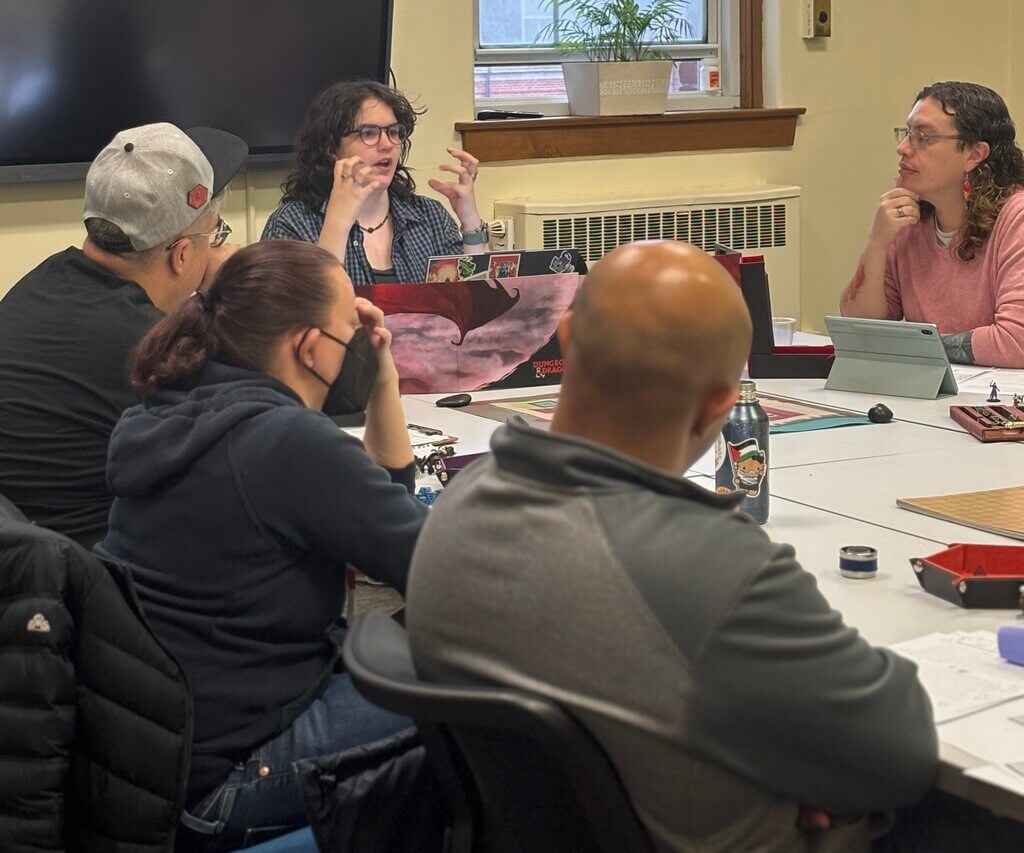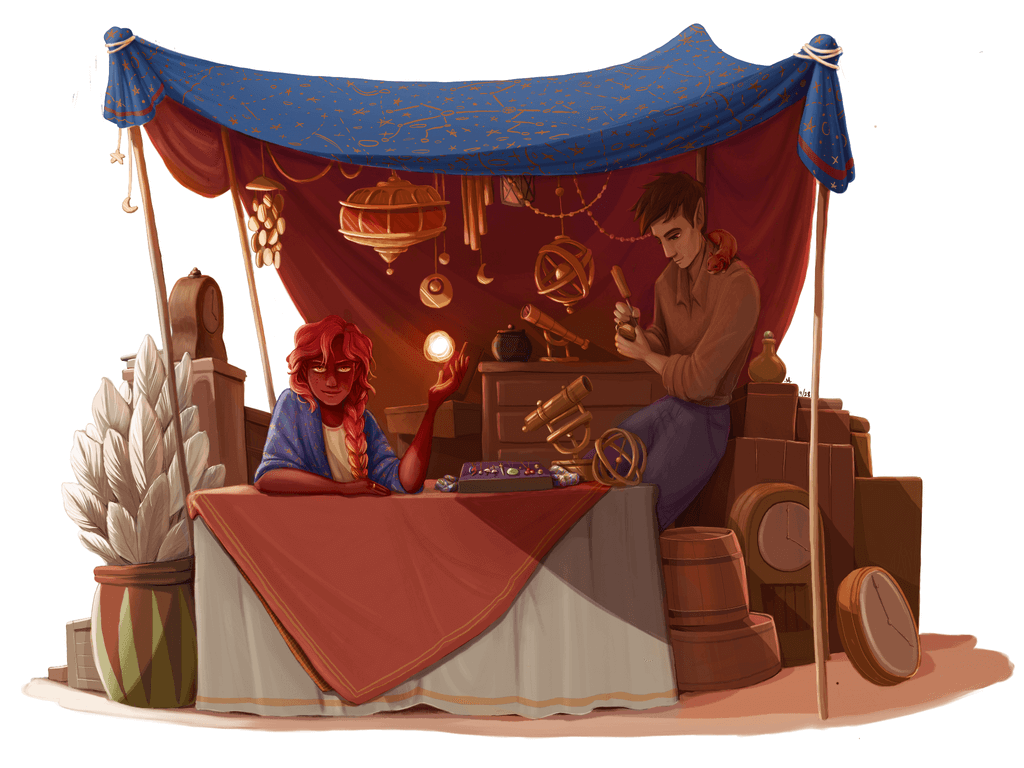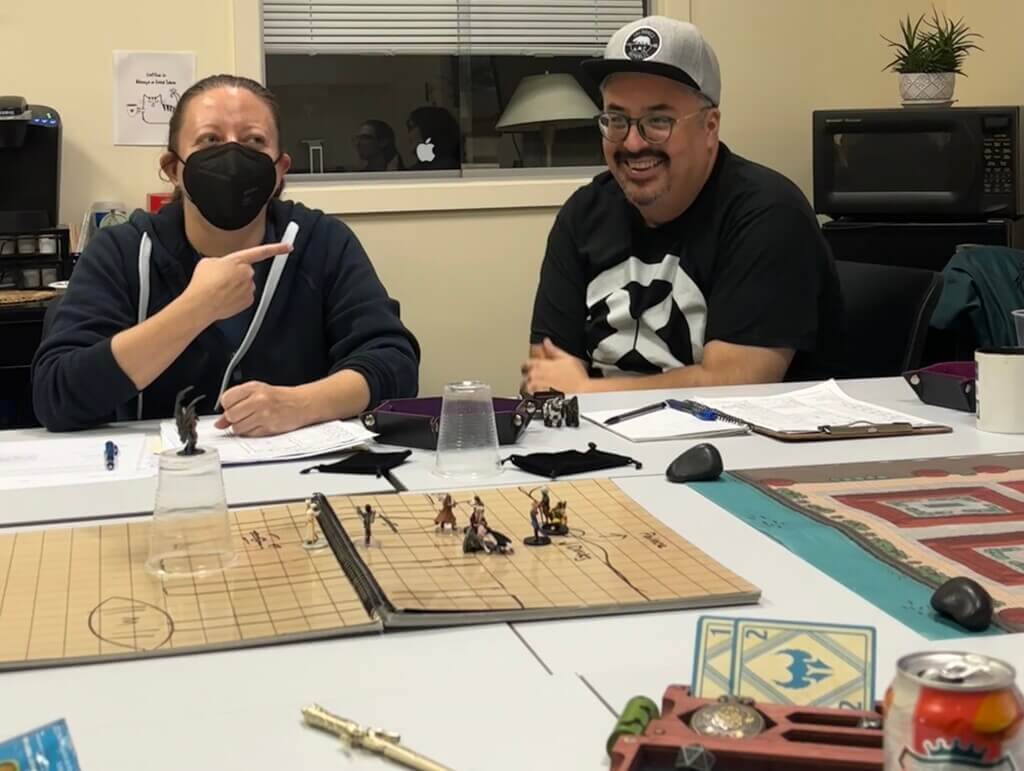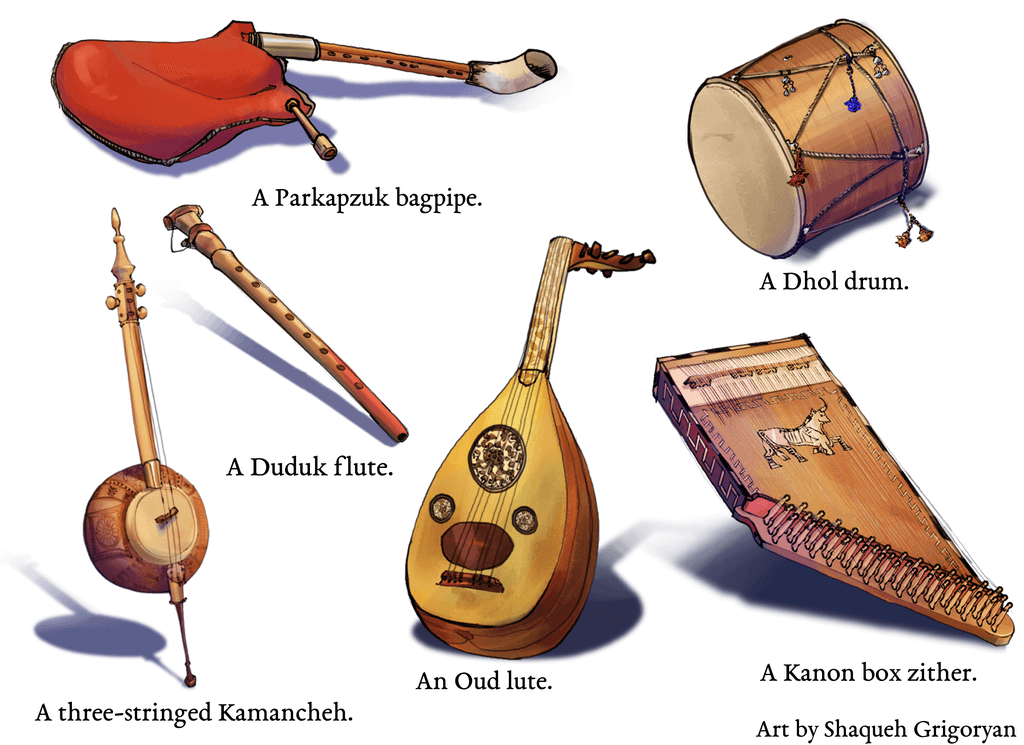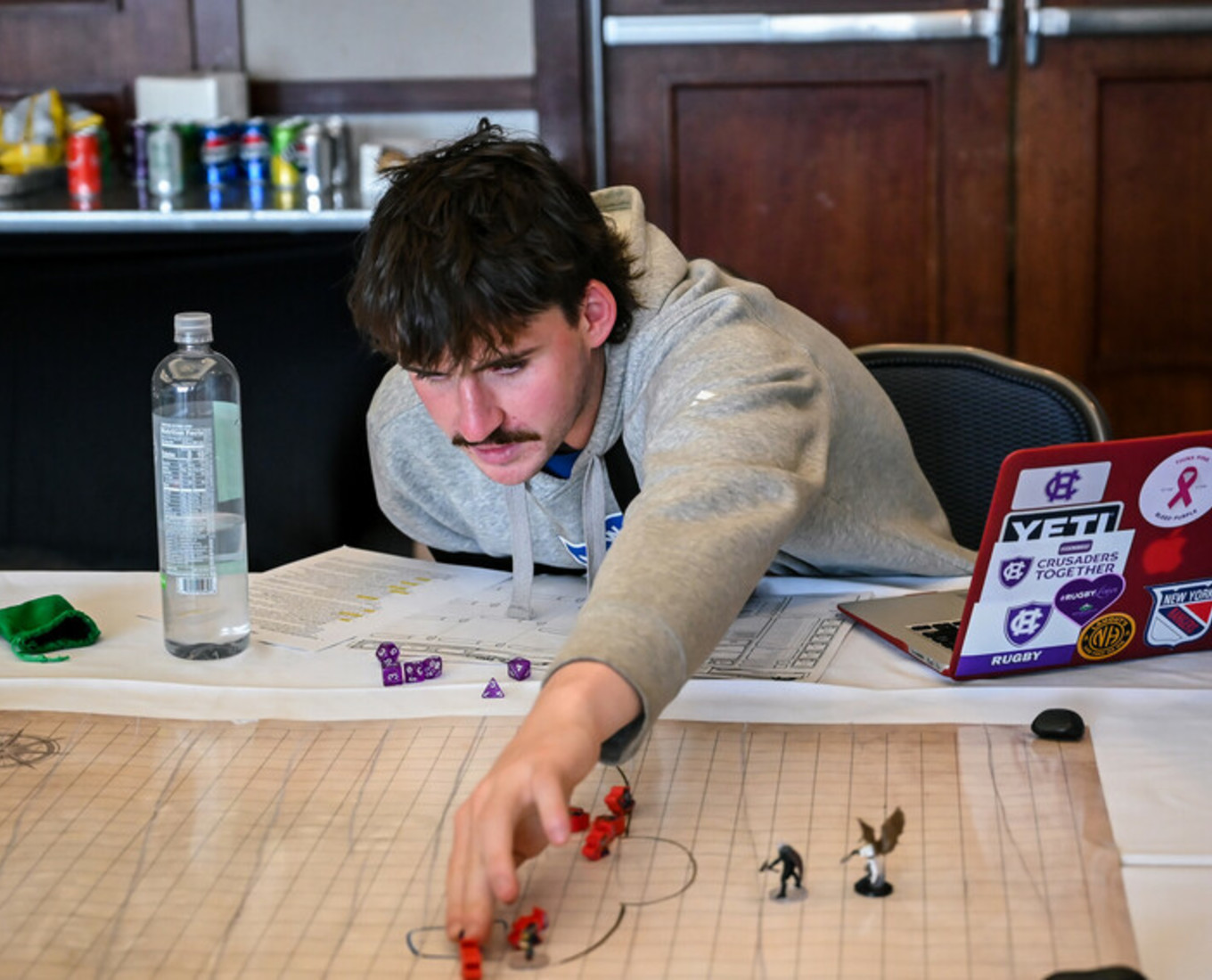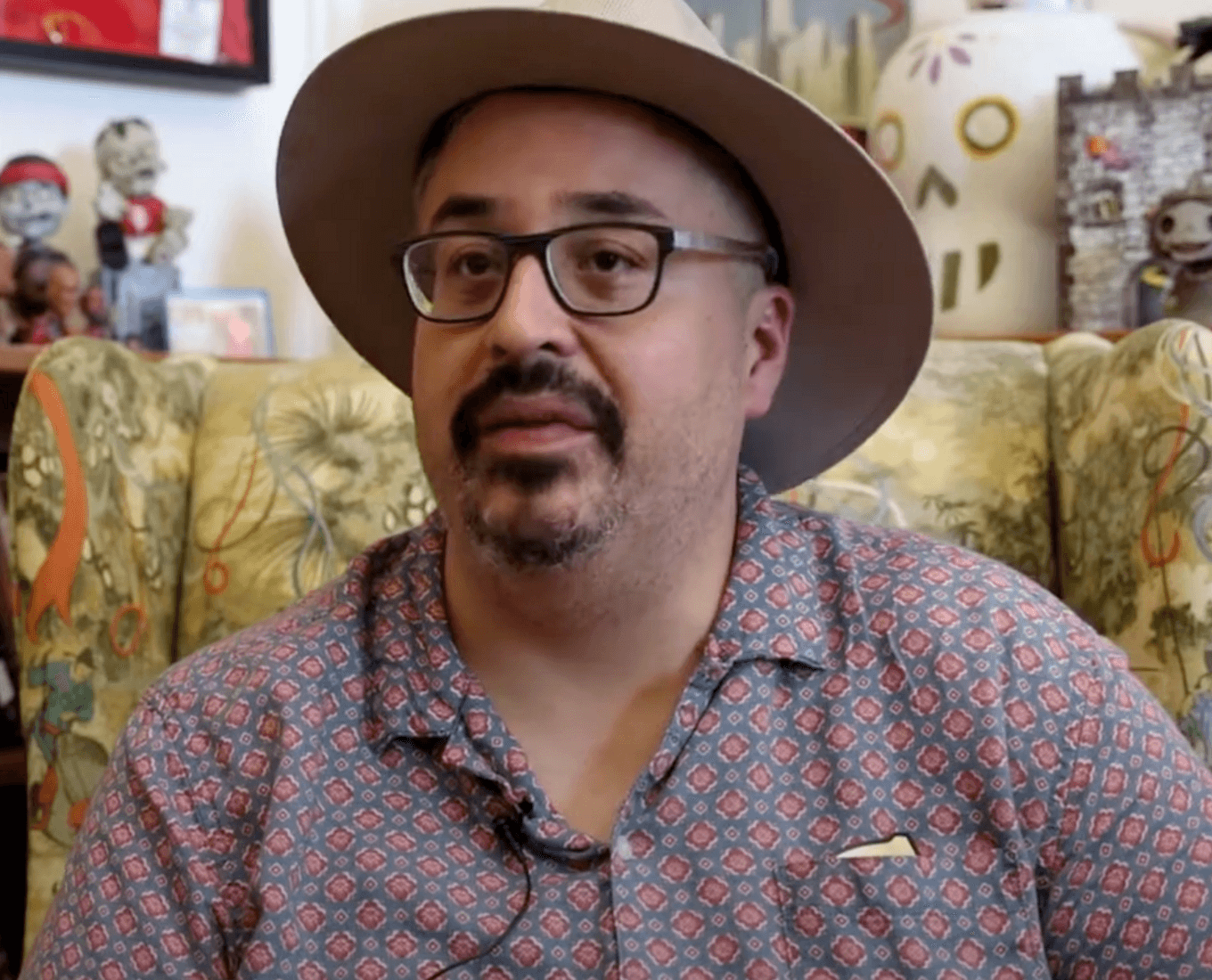“When you do something pop-y, like Dungeons & Dragons, you're going to have some people who are concerned that this is light, unserious work,” said Santos, co-advisor on Janigian’s honors thesis. “Jango is the one who revealed to me how profound D&D can be as a learning tool. I never believed that D&D could be this academically rich, and I never would have considered it without them.”
Janigian credits Santos (aka "Dr. J," as he’s known to his students) with opening their mind to D&D’s academic possibilities in the first place: “It all started in the Montserrat course I took with Dr. J – The Origins of Heroic Ambassadors and 21st Century Mythic Revisions. Our topic was graphic novels and comic books and how what was going on when they were written influenced the way that they were written. That taught me that anything can be academic, it's just a matter of how you think about it.”
Janigian, who has loved playing D&D since high school, said the course showed them intellectual pursuits and joyful pastimes don’t need to be relegated to separate corners: “I love telling stories and creating characters that have to overcome something, and that opportunity keeps me coming back to D&D. People always say your D&D characters are a part of you in some way, so you’re also getting to work through something you've experienced — and doing that with people in a safe, fun environment, as well.”
Janigian was awarded a grant to fund original artwork to accompany the playable, such as this by illustrator McKenna McEachen.
Adventures in Mayrenik
To kick off their Mayrenik adventure, Dungeon Master Janigian gave each professor at the playtest a gazetteer, the term for a detailed sourcebook of a D&D game’s world. Players chose characters and spent the first hour exploring a marketplace known as the Basalt Bazaar. “This lets players understand the cultural aesthetics of the place, warm up and find their character's voice,” Santos explained.
In the gazetteer, Janigian wrote Armenian history into the world of Mayrenik, putting their own spin along the way.
“The earliest star maps were found in the Armenian highlands, so that field of study is a huge part of my fictional civilization,” Janigian noted. “One of the main changes I’ve made is that the government is a matriarchy instead of a patriarchy. Armenia is known as Hayrenik, which means 'fatherland,' but I have named my nation Mayrenik, or 'motherland.' There are also Armenian legends that I'm drawing from and adapting into a queer retelling.”
Janigian says their thesis co-advisor, Dominic Machado, associate professor of classics, helped them think through questions like, “How do I imagine antiquity? How do I approach underrepresented history? How do we understand stories of a classical world?”
Faculty members Melissa Weiner and Jorge Santos were playtesters for Janigian's original module.
Janigian’s gazetteer, in turn, encourages players to reflect on several questions: “What stories were you told growing up? Is there a particular myth that stuck with you? Have you been displaced from your ancestral lands?”
“The great thing about D&D is that you get to experience the research of other people,” Janigian said. “And even if you're not an academic, this is totally accessible to you. You still get to walk away with an understanding of what this ancient world was like.”
‘A destination, but no set path’
Janigian was awarded an Ancient Worlds, Modern Communities grant through the Society for Classical Studies to fund three illustrators, two of which are based in Armenia, to draw the scenes, landscapes and characters of Mayrenik. The ultimate dream, Janigian said, would be to publish the playable, making the richness of Armenian culture accessible to a wide audience to explore through D&D.
Two of the three illustrators who provided accompanying artwork were Armenian, such as Shaqueh Grigoryan, whose work is seen here.
Janigian’s thesis is one of nine projects undertaken by students in the English Honors Program this year, said Susan Elizabeth Sweeney, Distinguished Professor of Arts and Humanities. The program, which Sweeney coordinates, is celebrating its 25th anniversary at the College. “It takes a particular kind of student to want to write an honors thesis,” Sweeney said. “They have to have this mixture of curiosity and passion to investigate on their own.”
Santos reflected, “We all hope to meet that student who alters the trajectory of your career, and that's Jango for me. If I did anything for Jango, it was encouraging and unlocking their academic creativity. And in turn, that has happened for me, because now I'm coming up with different kinds of classes and assignments for the College’s new Critical Race and Ethnic Studies department. That’s like D&D … you have a destination but no set path, so you have to be open to creative ways of fulfilling what may be your destiny.”
